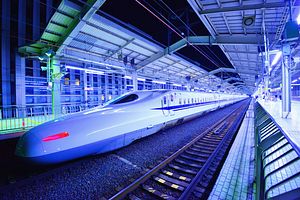A new round of free trade talks between Japan and the European Union have finally been scheduled, after several European stakeholders had questioned Japan’s commitment to lowering import barriers in sensitive sectors like agriculture and railway procurement. The EU said Wednesday that Japan had made sufficient progress in addressing its trade protection, and that the sixth round of talks would begin next month in Tokyo.
The EU’s Trade Policy Committee approved the continuation of talks, which began in April 2013. The EU promised to follow up on Japan’s progress in addressing trade barrier concerns after a year, with the possibility of suspending the talks if that progress was found to be inadequate. In late May of this year, Germany and France (among others) voiced concerns, saying that Japanese proposals regarding government procurement in the railway sector are not sufficient,” according to Jiji Press.
According to Reuters, the EU claims “that the use of an ‘operational safety clause’ in much procurement by JR (Japan railways) and urban transport operators is in practice a means of hindering foreign suppliers.” However, last month the EU released documents showing that Japan had complied with most of its commitments, or was in the process of doing so. Railway procurement is a significant issue for both Japan and the EU, with Japanese rail companies traditionally enjoying large state patronage, and the EU accounting for roughly 60 percent of rail equipment worldwide.
However, on Wednesday the EU also said it had generally agreed to a request by three of Japan’s major rail companies (East Japan Railway Co., Central Japan Railway Co. and West Japan Railway Co.) to be exempt from the WTO’s Agreement on Government Procurement (GPA). Japan had previously tried to have these companies from the GPA list, but had been blocked by the EU.
It appears that the Japanese government has made sufficient progress in convincing its EU partners that their trade concerns will be addressed. The EU and Japan combined account for 30 percent of global economic output and 40 percent of their global trade. Both are also in the midst of negotiating other substantial trade agreements as well. Japan’s current negotiations to join the Trans-Pacific Partnership could also provide a significant boost to Japan’s economy, yet agricultural lobbies in the U.S. and New Zealand have been far more outspoken against Japan’s trade protections than their European counterparts have. As it appears Japan’s EU partners are more inclined to accept Japan’s current stance on trade policy, an FTA with the EU may be able to shift the needle somewhat on the entrenched and protected sectors of Japan’s economy. However, if substantial reform is left out of the final wording (as in the agreement Japan signed with Australia), the effect could well be negligible.

































